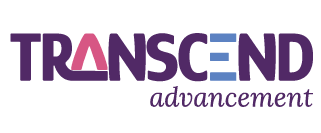DEIJB in Fundraising
How to Build a More Inclusive and Equitable Giving Culture
Diversity, equity, inclusion, justice, and belonging (DEIJB) are more than just buzzwords—they are essential components of modern philanthropy. Historically, fundraising practices have often centered on traditional major donors, sometimes overlooking or unintentionally excluding diverse donors, communities, and funding models.
To create a more inclusive and equitable giving culture, nonprofits must rethink their approach, ensuring that all donors feel valued, represented, and engaged.
Why DEI Matters in Fundraising
Building a more inclusive fundraising strategy isn’t just about doing the right thing—it’s also smart fundraising. Here’s why:
Expands Your Donor Base – Engaging a broader, more diverse group of donors helps reduce reliance on a small number of major gifts.
Strengthens Donor Loyalty – Donors who feel seen, heard, and valued are more likely to continue giving over time.
Aligns with Mission and Values – Many nonprofits serve diverse communities but may not have fundraising strategies that reflect that diversity.
A DEI-focused approach to fundraising ensures that philanthropy is accessible, equitable, and welcoming to all.
Strategies for More Inclusive Fundraising
How can your nonprofit embed DEI principles into its fundraising approach? Here are some key strategies:
1. Diversify Your Donor Outreach
Many nonprofits focus their efforts on traditional donors—wealthy individuals, corporations, and foundations. While these donors are important, they are not the only source of support. To create an equitable giving culture:
Expand outreach to communities of color, younger donors, and grassroots supporters.
Leverage culturally inclusive fundraising appeals that speak to different donor motivations.
Build partnerships with BIPOC-led organizations, faith-based groups, and community leaders to strengthen connections.
A more inclusive outreach strategy means everyone has an opportunity to contribute.
2. Rethink Your Fundraising Messaging
The way you communicate about giving matters. Traditional fundraising messages may unintentionally exclude potential donors by:
Using jargon or elitist language that feels unapproachable.
Assuming donors are wealthy and can give large sums.
Overlooking the importance of community-based giving in certain cultures.
To create more inclusive messaging:
Use plain, accessible language that invites all levels of support.
Highlight the impact of collective giving, showing that every donation matters.
Avoid framing donors as saviors—instead, emphasize partnership and shared impact.
3. Offer Flexible Giving Options
Not everyone can give a large one-time gift, but many people want to contribute. Consider:
Monthly giving programs that allow donors to contribute smaller amounts over time.
Crowdfunding campaigns that engage broad networks of supporters.
Non-monetary contributions, such as volunteer time or in-kind donations.
Offering multiple ways to give ensures that all donors can participate, regardless of financial status.
4. Build Relationships, Not Just Transactions
Fundraising is not just about asking for money—it’s about building relationships. Take time to:
Learn about donors’ backgrounds, values, and giving motivations.
Host events and conversations where donors can engage with your mission in meaningful ways.
Show appreciation beyond just tax receipts—personalized thank-you messages go a long way.
When donors feel like true partners in your work, they are more likely to stay engaged.
5. Evaluate and Improve Your DEI Efforts
DEIJB in fundraising is an ongoing process, not a one-time fix. Conduct a fundraising equity audit to assess:
Who your current donors are and who may be missing.
Whether your fundraising materials and events are inclusive.
How you recognize and celebrate diverse donors and contributions.
Making small changes over time leads to a more inclusive and sustainable fundraising approach.
Make DEIJB a Core Part of Your Fundraising Strategy
At TRANSCEND Advancement, we help nonprofits integrate DEIJB principles into their fundraising strategies. From donor outreach and messaging audits to customized training sessions, we provide the tools and insights needed to create a truly inclusive giving culture. Want to take the next step toward equitable fundraising? Let’s talk.
